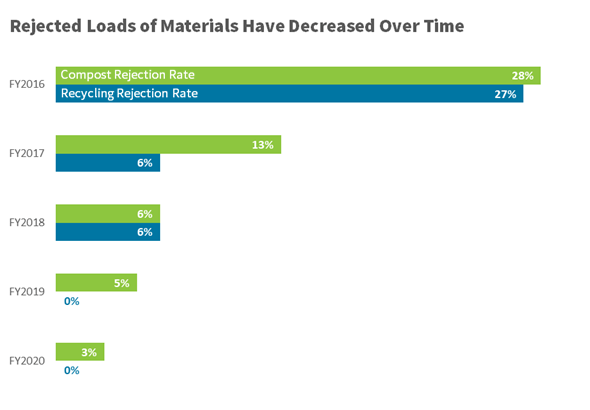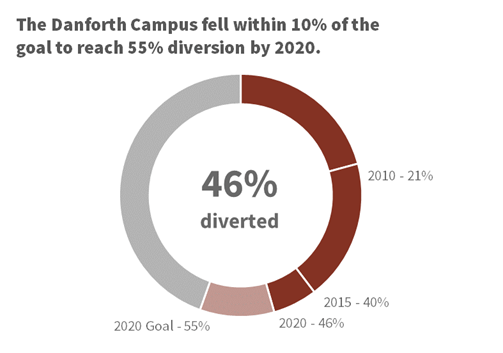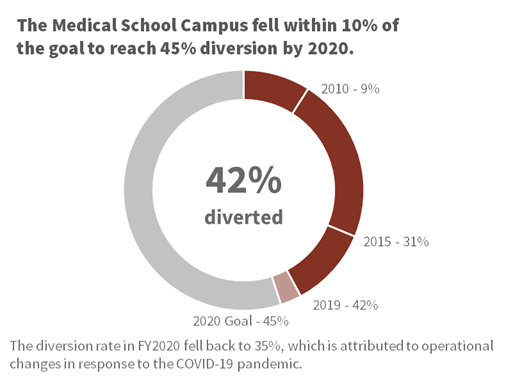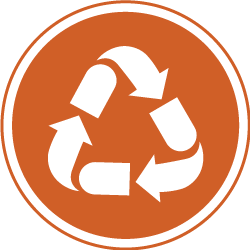
Washington University in St. Louis’ goal is to chart a path toward Zero Waste.
2015 Strategic Plan for Sustainable Operations
Objectives & Progress
Waste Diversion | In Progress
Through individual users and campus operations, WashU generates 17 million pounds of waste every year. The university is committed to reducing and diverting waste through infrastructure improvement and education of the campus community.
Reducing, reusing and recycling waste is an essential component of an institutional sustainability effort. It is often one of the first ways that new students or guests see the university’s commitments manifested in action. Recycling programs rely on an informed community to participate in waste avoidance and properly managing personal waste, whether they are in one of our dining spaces, an office setting, classroom or residential living space.
Outreach programs to educate the WashU community include the WashU Green Ambassadors (student volunteers who welcome new students to campus), a custodial green team on the School of Medicine campus, and multiple ewaste recycling events for employees throughout the year.
The university’s response to the COVID-19 pandemic resulted in a temporary shift in the approach to single-use food serviceware and other items. Corresponding with these changes, we have documented a regression in waste reduction programs. We expect a full recovery once normal operations resume.
Waste Reduction & Reuse Programs
WashU offers university-wide single stream recycling (where all recyclable materials are commingled in one bin), and compost collection in many dining spaces across campus. Other strategic dining initiatives include a campus-wide ban on the sale of bottled water which avoids 500,000 plastic bottles annually, a reusable to-go box option in most dining areas, straws available upon request, and distributing reusable dining utensils.
Over 10,000 lbs of materials from student housing are collected and redistributed through multiple year-end move out collections and a surplus re-circulation program repurposes university office furniture, supplies, and lab equipment.
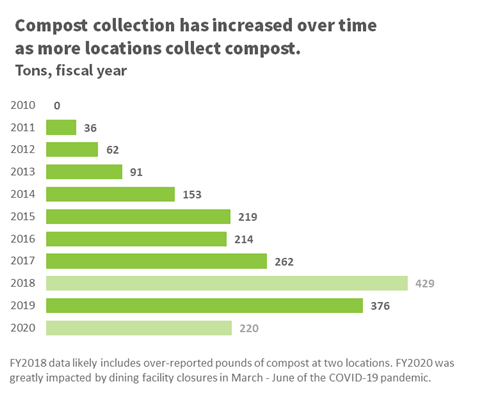
Highlights
Green Events
Reusable Dining
Composting
Construction Waste
